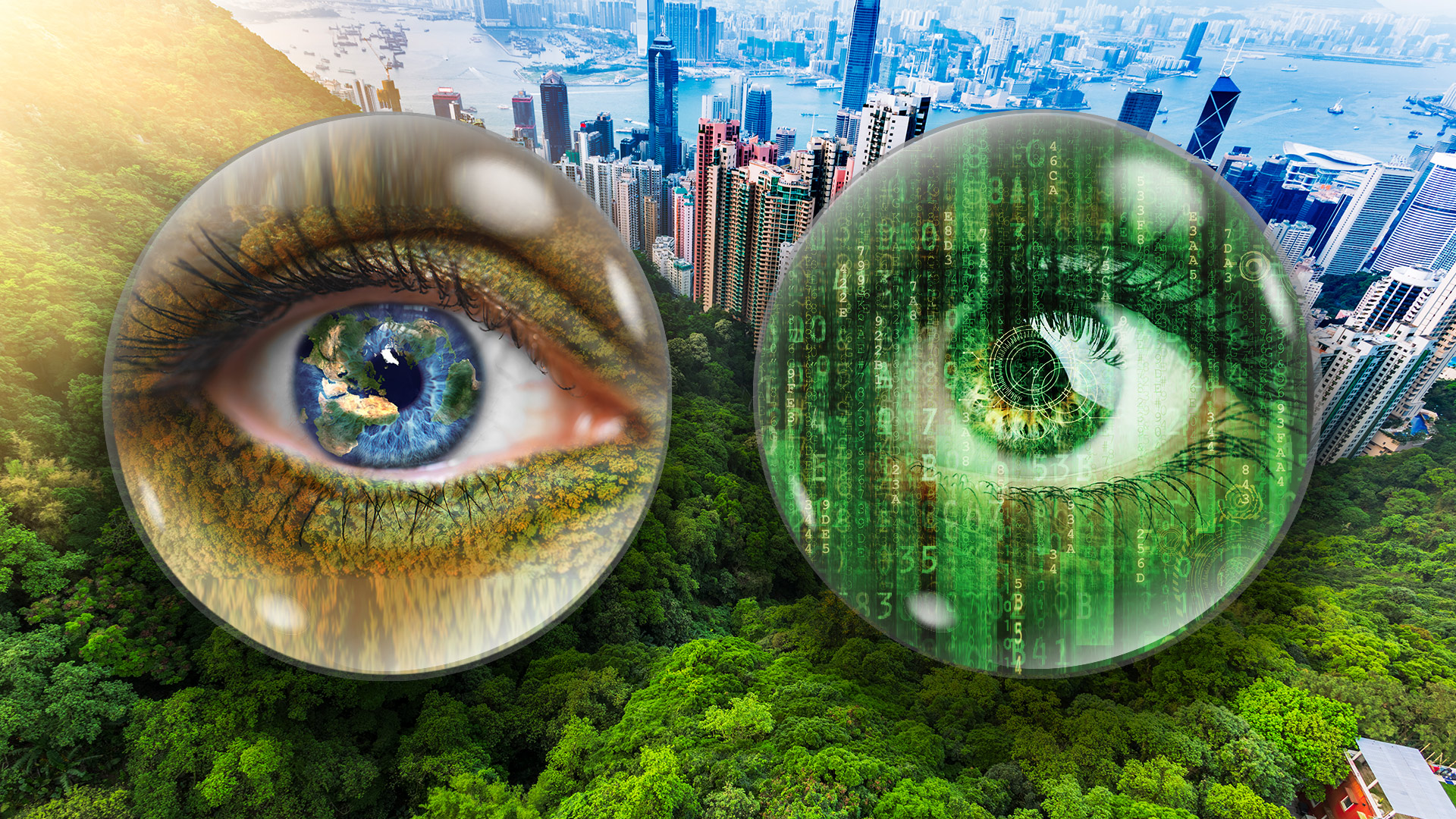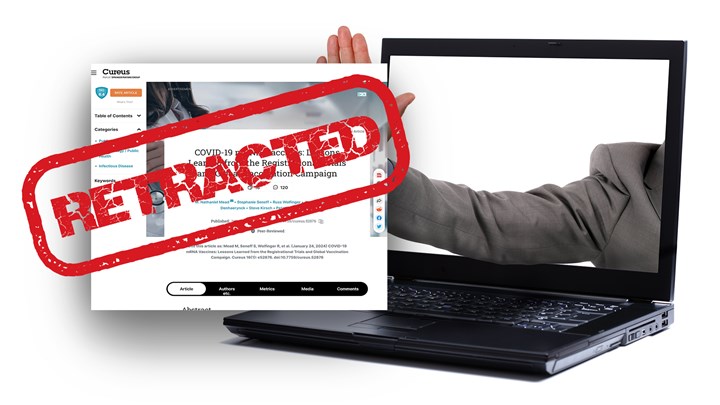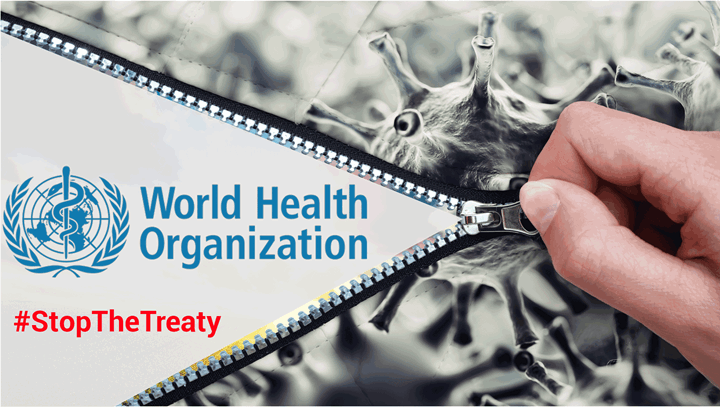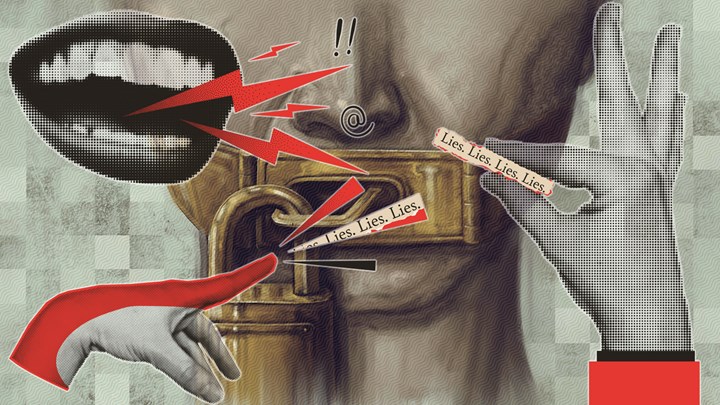Content Sections
By Rob Verkerk PhD, founder, executive & scientific director ANH-Intl & ANH-USA
TOPLINE
- Societies and social groups are becoming ever more polarised and fragmented, much of this being down to the way we receive and perceive news and information
- Our experience of the world around us means we’re subject to naïve realism and our increasing reliance on online news means that pre-selected filters determined by platform owners further restrict what we’re exposed to
- Our increasing inability to find agreement with each other, coupled with the rising tide of authoritarianism and censorship, potentially threaten the viability of our species
- The solution is unlikely to be in the hands of those who attempt to control us. It’s in our hands.
Listen to the article
Is the end nigh?
Anyone looking closely at the direction human societies have been taking these last few years has got to realise that humanity is at a juncture, one that might be so fundamental, it could determine the very survival of our species. You’d think.
For many of us, when we peer back at our short, in evolutionary terms, history, we have a sense that what we face today presents a risk greater than that which our small band of Palaeolithic ancestors had to handle during the last ice age, some 40,000 to 100,000 years ago. At least some of them made it through, and that immense challenge wasn’t of our own species’ making. Today’s biggest challenges most definitely are.
But, perhaps to our surprise, we find many around us who don’t see it this way.
I meet people regularly who tell me their lives, ever since the World Health Organization (WHO) decided in May 2023 to call an end to emergency status of the COVID-19 pandemic, have normalised, or at least, ‘new normalised’. When I hear such views, it makes me wonder what kind of bubble they must be living in. I then have to pinch myself to be reminded that they also see those of us who believe we’re on the precipice of disaster as also existing in a bubble. But it’s quite clearly a different bubble.
One of the most important reasons there is so little agreement over where we are as a society, is because we all have very different perceptions of reality—these perceptions being determined by our limited five senses. A principle well understood among psychologists is that people tend to think their perception is reality, when, in fact, this is an impossibility. Our perception just feels like reality. Another way of looking at it is that an individual’s perception is that person’s reality, not someone else’s.

Plato’s cave and naïve realism
Our senses are extremely limited, both in their very nature, and in space and time. Take what we see; the band of visible light that most of us can see represents just a tiny fraction (close to 0%) of the known electromagnetic light spectrum. And the things we hear and see that are likely to be most influential on the future of our species, are mostly things that happen outside our own experiences. They are very rarely experienced first-hand. We might hear information or opinions from people around us, or they’re filtered through one media source or another, these media sources often carrying very substantial cognitive or editorial biases.
What we perceive, regardless of its source, is then filtered through our cognitive processes and we then try to apply meaning to it. We often find this meaning becomes more solidified when it’s confirmed by social groups with which we associate, and we tend to align with those who have similar views, this being, in turn, the basis of group psychology. Psychologists refer to our sense of reality, one filtered through our cognitive processes, and those of the social groups who influence us, as naïve realism, a term first put forward by Stanford psychologists Lee Ross and Andrew Ward in the 1990s.
There’s also nothing new about learning how our perception can deceive us. Think back to Plato’s allegory of the cave.
Digital, virtual reality
But there’s another layer we need to apply on top of all of this that is something of a game changer. It’s linked to the radical change in the ways different people receive their news, and how this news is filtered. Online news is now, in most countries, the most important way people get their news, this being especially the case among younger age groups. An ongoing YouGov survey in the UK finds that online news was shown to be the dominant news source for all ages, except among the over-65s, who get most of their news from TV.
Online news is heavily filtered by algorithms. These algorithms are used by individual platforms to give you the news the platform owners think is of interest or relevance to you, while removing news it thinks you shouldn’t see, this process being referred to as pre-selected personalisation. In addition to the platform’s filtering, individuals can also indicate their preferences (i.e. self-selected personalisation) which will also influence the news to which the person is exposed.
The width and breadth of online news also depends on where you get your news; is it through an internet search, a news app, a social media feed, or a chat app like WhatsApp or Telegram—or a combination? Each one is subject to algorithms, biases and, increasingly, different degrees of censorship.
However we wish to dice up or explain our current predicament, there seems little doubt we’re drifting ever deeper into a virtual reality.

Censors need censoring
We’ve been following censorship of natural health closely for years and it’s now extraordinary to see just how distorted people’s perceptions are becoming, depending on the information and news feeds they’re receiving. Examples include emerging generalisations such as low carb or intermittent fasting being unhealthy, or that barefoot shoes are bad for your joints and spine. While generalisations can never apply to everyone, the notion of discarding intermittent fasting or barefoot shoes, to take just these examples, could be a significant detriment to health, and such assessments come from keeping a fairly solid handle on where the known science and clinical evidence is on a gamut of issues relating to natural health, these two included.
Reality exists outside echo chambers and filter bubbles
Put all of this together and we see the emergence of two phenomena that have a huge influence on how we see the world around us: echo chambers and filter bubbles. Echo chambers are environments that over-expose us to news that we like or agree with, and they reinforce specific views while reducing our exposure to other views, so distorting our perception of available information. Filter bubbles, by contrast, occur where news we dislike, disagree with, or that the platform owners think we shouldn’t be exposed to, are filtered out, so narrowing our view of the outside world.
There is now almost no subject on which we can all agree, especially when it comes to the big issues like politics, health, economics and environment. The Pew Research Center shows the dramatic loss in public trust of US governments over the last 60 years, this same trend being reflected in countries around the world. Last year’s Nobel Prize Summit was all about trying to re-invigorate public trust in science. The trouble is, as we showed in our own analysis, the establishment’s efforts to regain trust often have exactly the opposite effect. This is especially the case when the central strategy involves trying to limit free speech and expression through censorship.

Resolving our life-threatening dilemma
It's going to be impossible for us to unravel this tumultuous problem facing human society unless we become more aware of the processes that are causing such extreme polarisation and fragmentation within society. This means we have to recognise the limitations of our own perception, how this affects our sense of reality, what meaning we derive from the information to which we’re exposed, and that we’re all susceptible to naïve realism. But more than that, we also need to work harder to expose ourselves to more quality and trusted information that hasn’t been isolated within echo chambers or distorted by filter bubbles.
This is one of the reasons that every week—for over 15 years now—we’ve been giving you news about natural health through our free newsletter, because we know just how difficult it is to receive this kind of news through mainstream news and social media filters.
Yes, we are at the edge of a precipice, and it’s important that we recognise that those who control us have little interest in delivering a solution. They are after all driving these processes. This leaves us with no other option than looking to solutions ourselves.
Other than the need for much greater awareness, one of the most important objectives has to be to pull us back from the rising tide of authoritarianism and censorship. These two processes, I believe, can only be explored and weighed up realistically by those who have both a political consciousness and a concern for humanity. Where they become increasingly influential, in a world in which echo chambers and filter bubbles continue to exist, I uphold they could become catalysts that generate human responses sufficiently powerful to annihilate our species. I just hope either I’m wrong or the vast numbers of us who’re looking to co-create a better world for future generations are able to do something about it. Interestingly, this is a good year to get properly stuck in as it’s a year in which some 50% of the world’s population are eligible to vote in so-called democracies. Let’s get on with it.
P.S. We’ll be releasing our censorship campaign shortly—so stay tuned!
>>> If you’re not already signed up for the ANH International weekly newsletter, sign up for free now using the SUBSCRIBE button at the top of our website – or better still – become a Pathfinder member and join the ANH-Intl tribe to enjoy benefits unique to our members.
>> Feel free to republish - just follow our Alliance for Natural Health International Re-publishing Guidelines
>>> Return to ANH International homepage








Comments
your voice counts
There are currently no comments on this post.
Your voice counts
We welcome your comments and are very interested in your point of view, but we ask that you keep them relevant to the article, that they be civil and without commercial links. All comments are moderated prior to being published. We reserve the right to edit or not publish comments that we consider abusive or offensive.
There is extra content here from a third party provider. You will be unable to see this content unless you agree to allow Content Cookies. Cookie Preferences